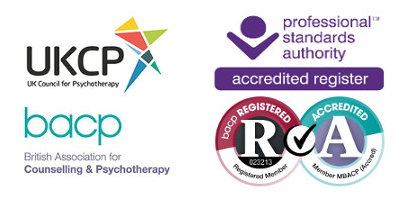Counselling for LGBTQ Related Issues & Gender Identity
It is particularly necessary for LGBTQ people to work with a therapist who understands their experience and culture and who is free from homophobic prejudice. Understanding the culture, scene, concept of family and attitude to monogamy. Marcus offers caring, understanding and sensitive Counselling for LGBTQ related issues, especially for those who are questioning and unsure of what they are feeling and thinking.
What are LGBTQ Issues, isn’t it just ‘life’?
Rates of depression, anxiety and other psychological and mental disturbance are relatively high among LGBTQ people, along with drug and substance misuse (cannabis, poppers, ecstasy, cocaine, ketamine) and a range of addictions. There are often issues in the background of homophobic bullying (at school, for example), being stigmatised, inequality, discrimination, violence, and early, painful rejections by their families and communities of origin. Experiences of shaming, fear, being on the receiving end of casual homophobia and stereotyping are fairly universal.
All the discrimination and rejection you may have experienced while coming to terms with your sexuality can be a source of mental distrsss and low self-worth that can endure for many years and devastate many areas of your life.
Sexual Orientation and Gender Identity Counselling
The difficult process of coming out to friends, family and others is in many ways a lifelong, ongoing challenge
Working through your issues with an LGBTQ friendly therapist
By talking through your problems or concerns in the safe, non-judgemental and confidential environment of counselling, you can begin to build up a solid base of support that can equip you with the coping strategies to challenge the problems you face and help you explore complex and painful emotions including issues such as depression, anxiety or substance abuse. Therapy can also support you to manage complex issues around sex and relationships.
Take the first step and contact Marcus to discuss Counselling for LGBTQ Related Issues or Gender Identity.
Further Information, Articles & Advice about …
30 Ways to Combat Internalized Homophobia
(courtesy of Adam D. Blum of the Gay Therapy Center)
- Find gay friends with whom you identify.
- It takes a while: keep looking until you find them.
- Don’t expect your parents to “get it”, but don’t tolerate rudeness or disrespect.
- Only date kind men.
- Allow yourself the freedom to view all your fantasies in porn.
- Take a sociology class and learn about the arbitrary, made up rules that different societies create about what is okay, and why.
- Type in “love yourself workshop” on a search engine and see what comes up.
- Care deeply about what it was like for you as a gay kid in high school.
- Say “I love you” to yourself even though it feels ridiculous.
- Do something that feels “too feminine,” maybe in private.
- Avoid “friends” who put you down.
- If you are religious, join a church that knows that gay really is good.
- Practice coming out to friendly strangers and work your way up to telling the important people in your life.
- Notice when you are trying to be perfect and remember: it’s futile.
- Take small interpersonal risks every week, such as revealing something that feels slightly vulnerable.
- Read Randy Shilts’ The Mayor of Castro Street.
- Read Alan Down’s The Velvet Rage.
- If you are new-agey, read Louise Hay’s You Can Heal Your Life.
- Raise your political consciousness at a gay fund raising event.
- Love some of your most judgmental family members from afar, rather than in person.
- Never underestimate the power of childhood exposure to homophobia: it’s damaging, and repair will take your full effort.
- Commit to making self-nurturing a new lifetime habit.
- Work with a gay-friendly therapist or coach.
- View a mean homophobe with sadness, imagining how truly scared and insecure he is on the inside.
- Join a gay artistic, athletic, political, community service or support group.
- Get angry about injustice: righteous anger builds self-esteem.
- Treat other gay people especially well.
- Be a witness to your thoughts. By detaching, you’ll notice your illogical, self-critical judgments.
- If you live in a very conservative area, do something on this list at least once per day because you need extra support.
- Create your own list of things you can do. Then do them.
Gay Men & Mental Health
Guardian article on the mental health crisis among Britain’s gay men
Read the article …



